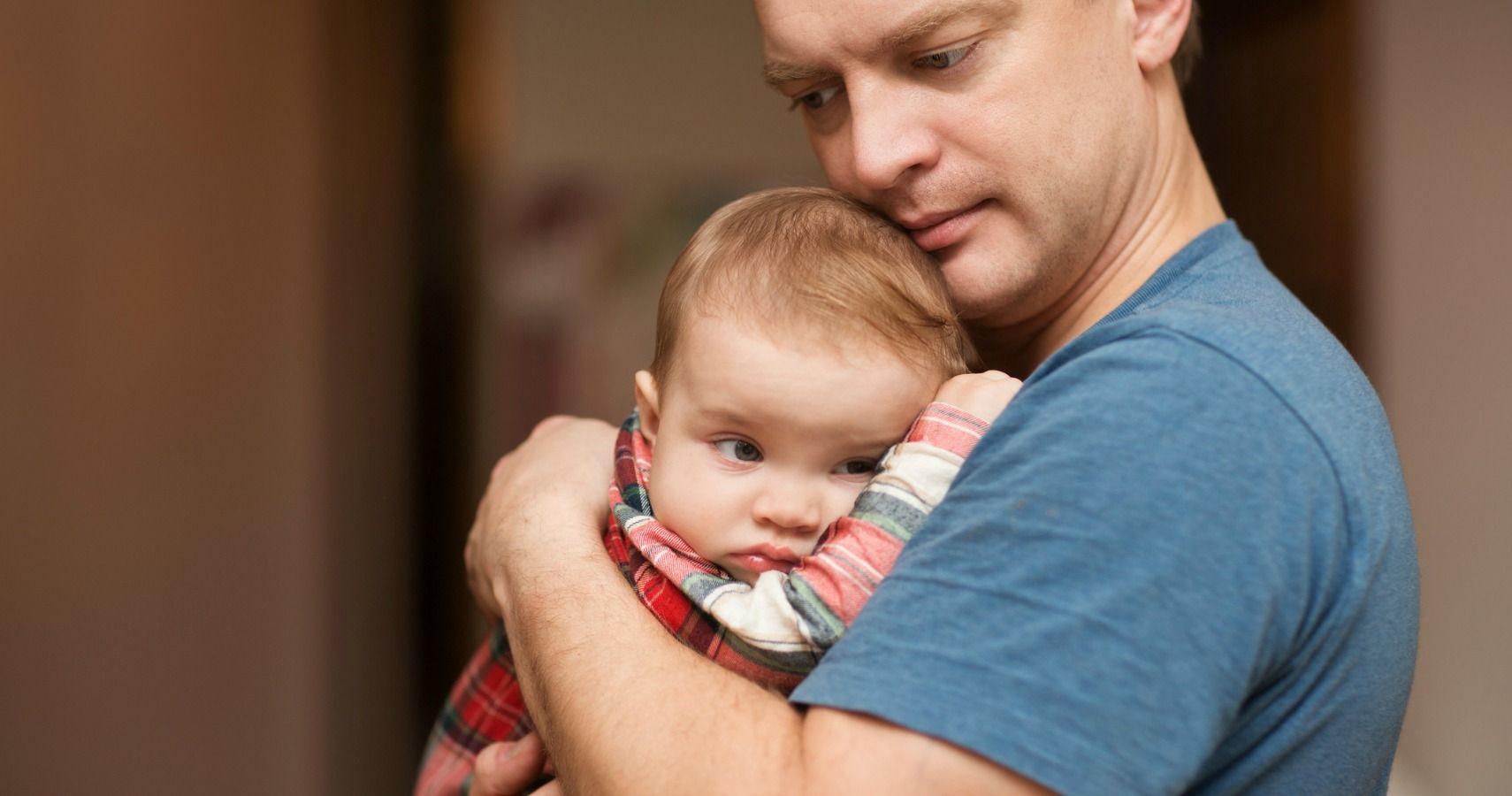It's estimated that between 10-20% of women who give birth will suffer from postpartum depression or a postpartum mood disorder. It's a vicious illness, and left untreated, can be catastrophic. We talk a lot about moms and how to help them after the birth of a child. We know the warning signs, where to get help, and how to support someone in our life who is battling through PPD. But what we don't talk about enough are dads. While women suffer from postpartum depression and mood disorders, we're learning more about postnatal depression and how it affects new fathers. And as it turns out, it affects a lot more dads than people thought.
A new study published in JAMA highlights the prevalence of postnatal depression in new fathers. Postnatal depression isn't new; in fact, a 2004 study suggested that as many as 50% of new dads were affected by postpartum depression when their wives were experiencing it. A different study in 2010 found that roughly 10% of fathers experienced depression at some point between the firs trimester and their child's first birthday.
But according to new research, postnatal depression in new fathers in more common than people realize. Researchers at the Indiana University School of Medicine found that 4.4% of new dads suffered from postnatal depression (participants in the study were screened for depression at different pediatric clinics in Indianapolis). In contrast, 5% of new moms in the study were found to have PPD. So the gap is much smaller than people believed it to be.
The problem is, new fathers might not even realize they're experiencing postnatal depression. It's certainly not talked about as much as PPD. That's why this study is so important. And as it turns out, hormonal changes may be at the root of what causes postnatal depression, just as with postpartum depression. The New York Times reported on a study last year that said men's testosterone levels drop after their partners give birth, which could contribute to their depression.
As with so many other aspects of mental illness and mental health, talking about it helps erase the stigma around it. We need to talk more about how to support new dads, just as we do new moms. And we need to make sure that new fathers are also being screened for depression following the births of their children.
RELATED: New Study Finds One Emotion Is Often Overlooked When Screening For Postpartum Depression

